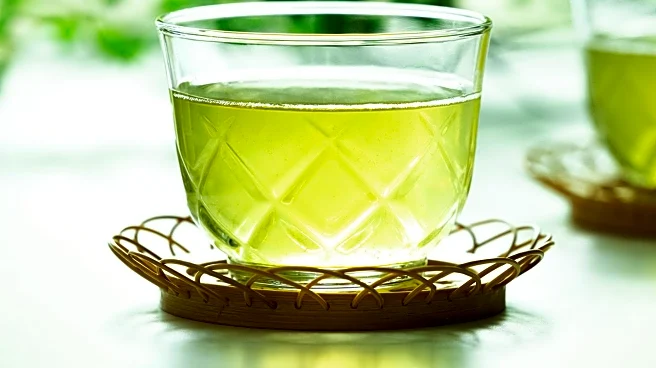What's Happening?
A recent study investigated the relationship between green tea consumption and happiness among elderly individuals in Japan. The research utilized data from the Japan Gerontological Evaluation Study (JAGES),
focusing on 34,567 community-dwelling residents aged 65 and older. The study aimed to determine if there is a correlation between the amount of green tea consumed and the level of happiness reported by participants. The analysis included 15,115 individuals after excluding those with missing data. Participants rated their happiness on a scale from 1 to 10, and their green tea consumption was categorized into four groups based on daily intake. The study also considered the influence of social networks on this relationship, examining how the size of a person's social network might interact with green tea consumption to affect happiness levels.
Why It's Important?
Understanding the factors that contribute to happiness in the elderly is crucial for improving quality of life and mental health in this demographic. The study's findings could have implications for public health strategies aimed at enhancing well-being among older adults. If a positive link between green tea consumption and happiness is established, it could lead to dietary recommendations or interventions that promote green tea as a simple, accessible means to boost happiness. Additionally, the interaction with social networks highlights the importance of social engagement in maintaining mental health, suggesting that community-building activities could be beneficial alongside dietary changes.
What's Next?
Further research is needed to confirm the findings and explore the mechanisms behind the observed relationships. Future studies could investigate whether similar patterns exist in other populations or with different types of tea. Additionally, longitudinal studies could provide insights into the long-term effects of green tea consumption on happiness and mental health. Policymakers and healthcare providers might consider these findings when designing programs to support the elderly, potentially incorporating green tea into dietary guidelines or community health initiatives.
Beyond the Headlines
The study touches on broader themes of how lifestyle choices, such as diet and social interaction, can significantly impact mental health and well-being. It also raises questions about the cultural aspects of tea consumption and its role in social rituals, which might contribute to its positive effects. The research underscores the potential of integrating traditional practices with modern health strategies to address mental health challenges in aging populations.








